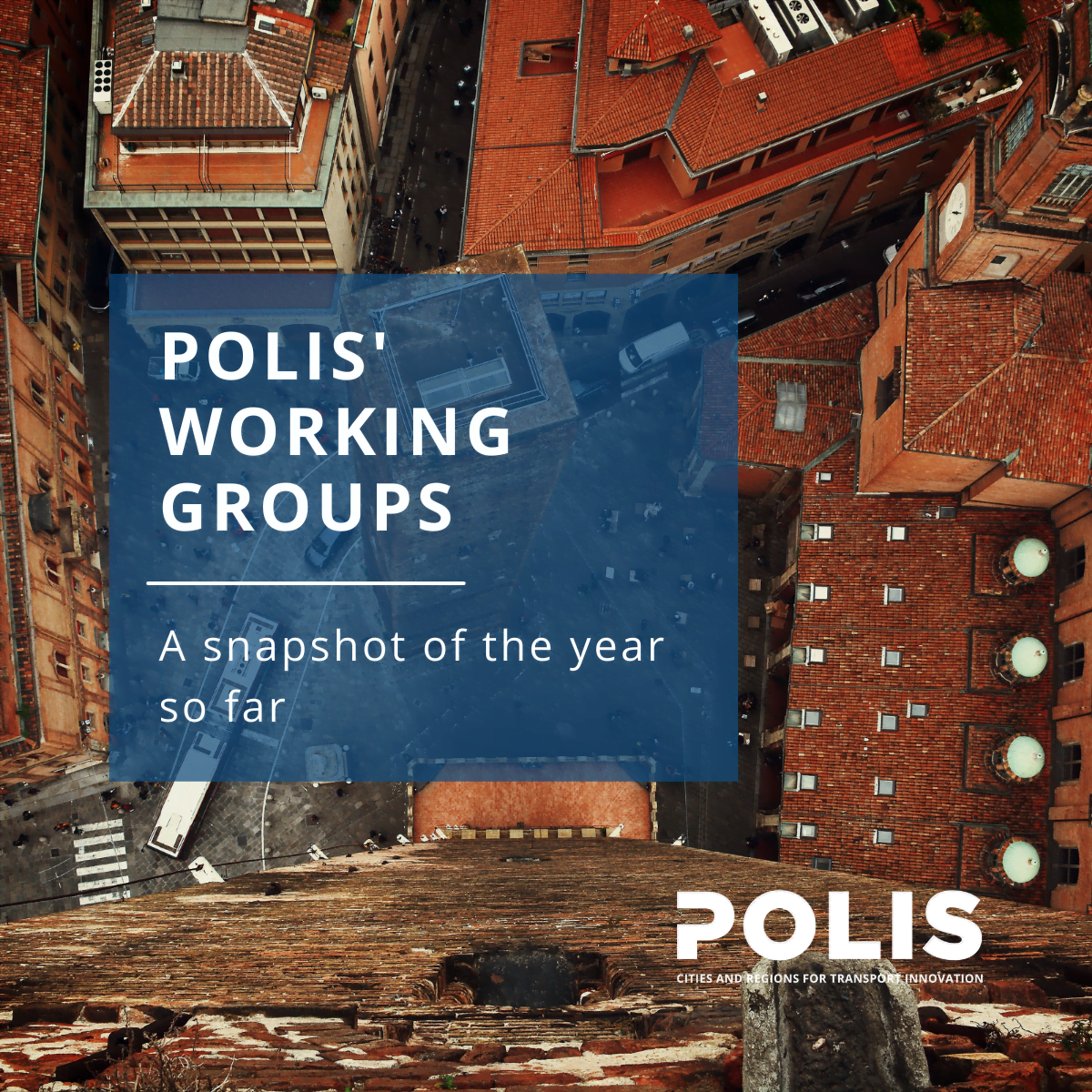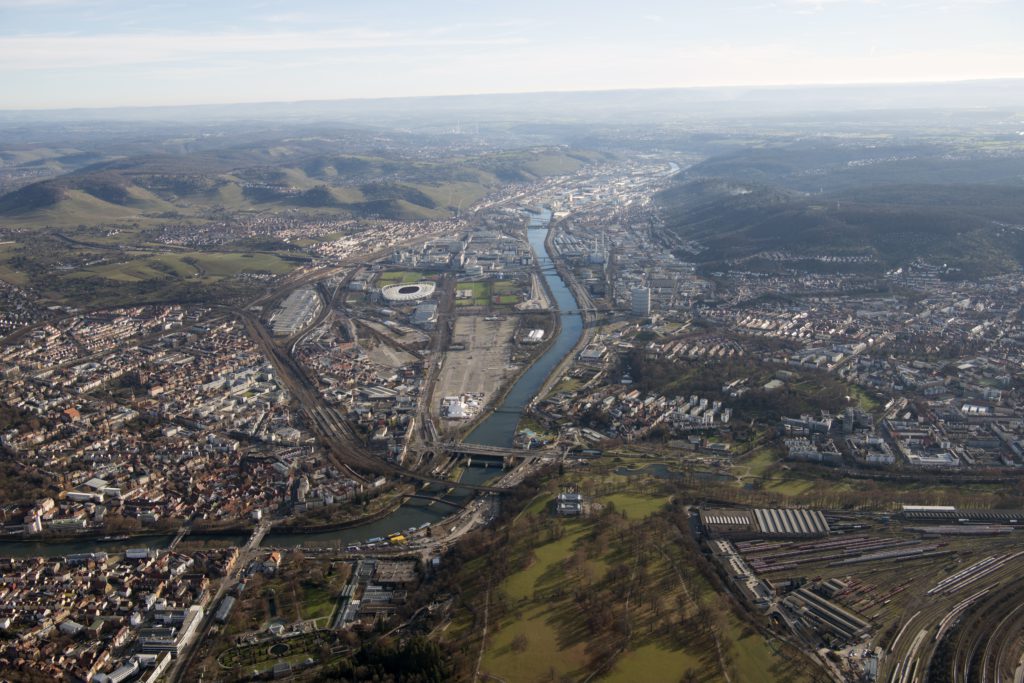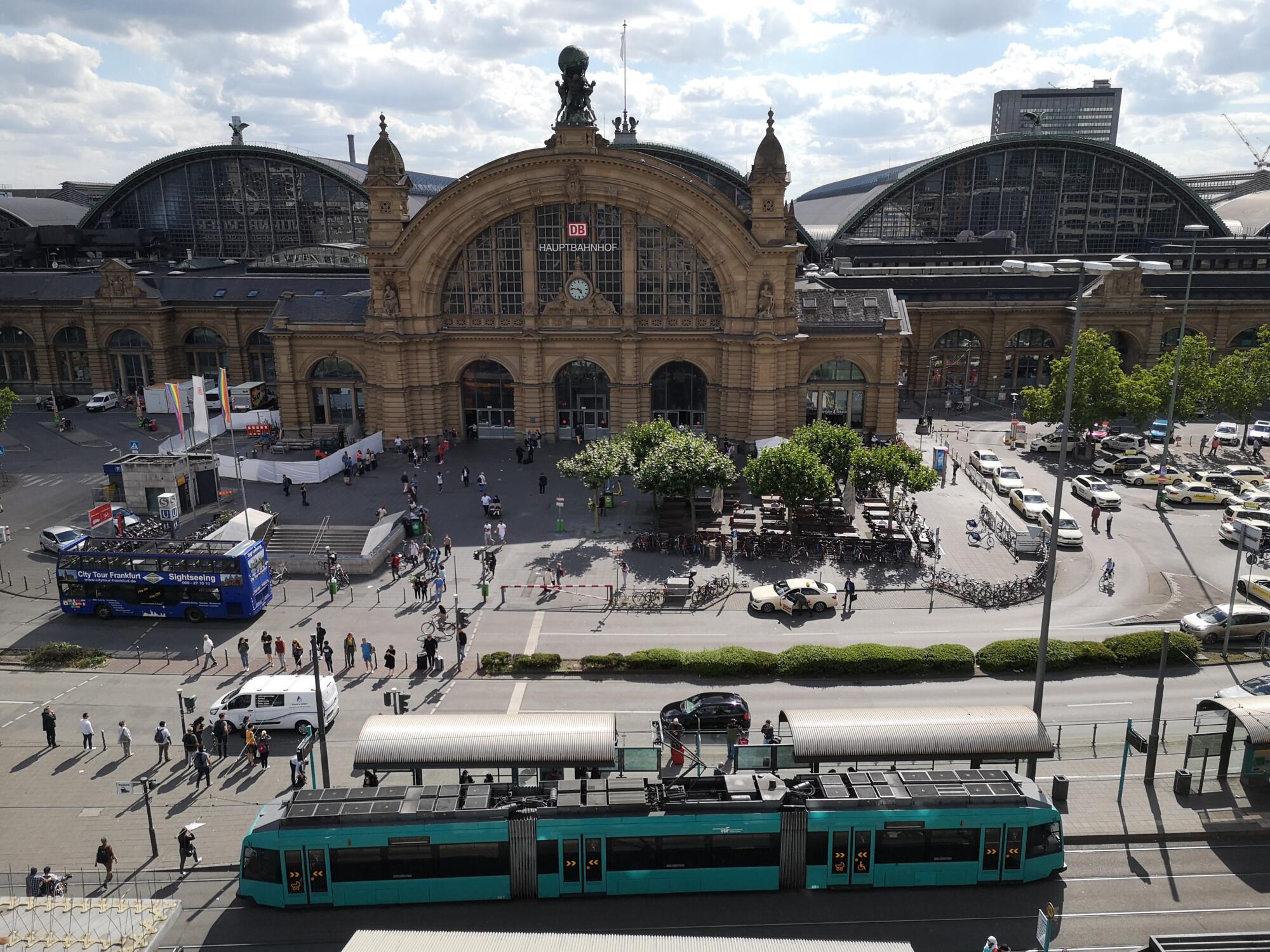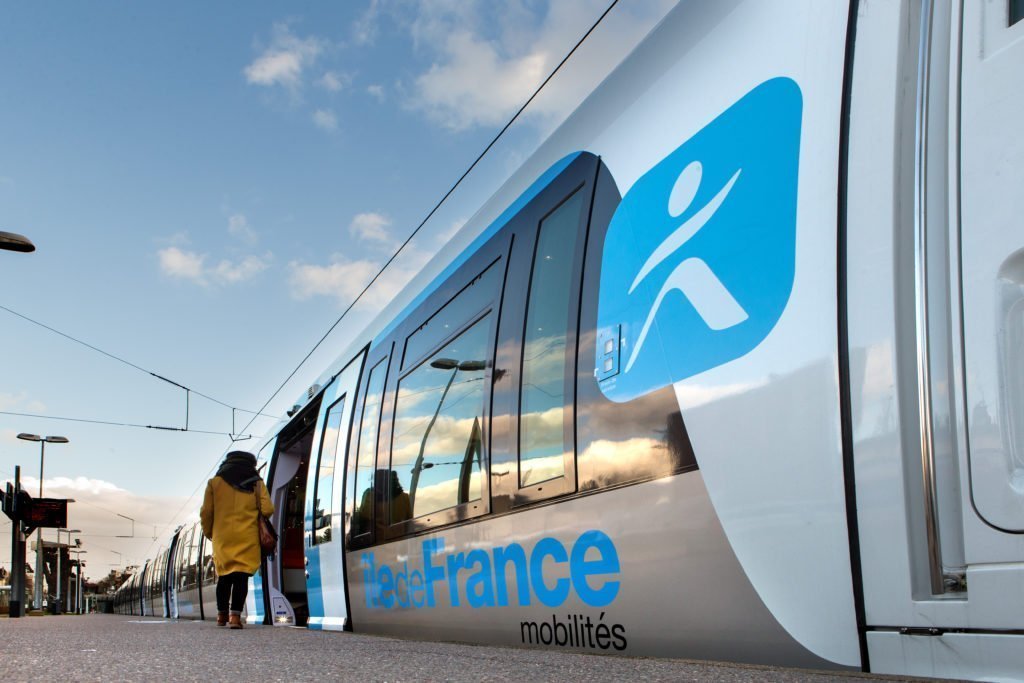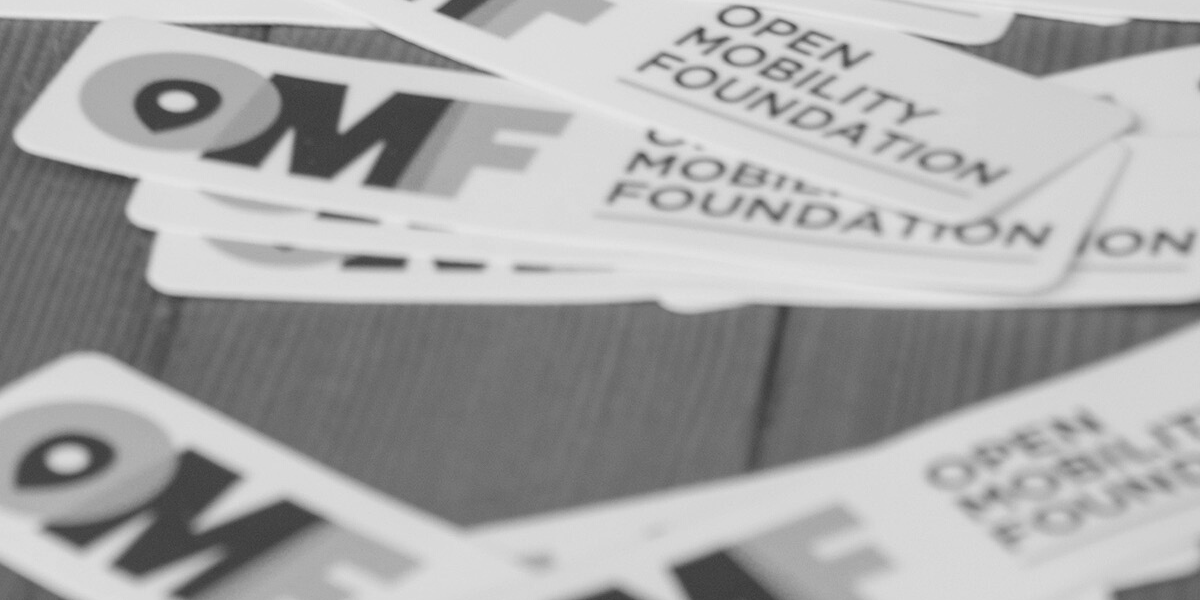POLIS’ Working Groups: The year so far
POLIS’ working group meetings have begun 2022 with a bang. If you have not joined one yet, here is what you have missed so far this year!
If Europe is to achieve its sustainable mobility transition, it needs to work together, and our cities and regions have a key role to play. However, the path forward is not always easy, and overcoming the challenges requires understanding what works and what does not, learning from others pursing the same goals- and of course sharing one’s own achievements.
In come POLIS’ working groups.
Our working groups offer an excellent platform for peer-to-peer exchange (and rigorous debate) with other European cities and regions on a wide range of urban-mobility related topics including freight, safety, clean vehicles & air quality, health & active travel, governance, social & economic access, and traffic efficiency.
With POLIS membership drawing from cities, regions and knowledge institutes from across Europe- and beyond, these events are unique forums for conversation, exchange and learning.
With their sights set clearly on a sustainable future for urban mobility, capitals including London and Paris, to small and medium sized cities such as Leuven and Ravenna, as well as regions such as Baden Württemberg and Catalonia, join leading academic institutions including Gustav Eiffel University, Breda University and CEREMA and institutes like the Open Mobility Foundation- as well as operators including SBB.
2022 has already been a busy year for our working groups, here is a sneak peak of what was discussed.
Active Travel & Health: 15-minute city concept, from design to implementation
The 15-minute city is a concept which has captured the attention of transport professionals, urban planners, architects- and indeed the media. Following the onset of the COVID-19 pandemic, as cities sought to increase active travel options, generate space for social distancing and support local commerce, the 15-minute city has grown rapidly in popularity.
From Barcelona's superblocks to Glasgow's 'Livable Neighbourhoods' plan, metropolises of all shapes and sizes have begun to experiment more radically with urban design in ways which fundamentally reshape urban space around sustainable mobility- in an effort to address air quality, congestion and accessibility. Cities began to see mobility as an experience, not simply a means of getting from A to B.
But what does the 15-minute city look like on the ground, and how is it achieved? While it is a catchphrase fast dominating the urban mobility lexicon, the practicalities surrounding design, implementation and maintenance are critical.
At first glance it appears a simple idea; most daily necessities should be accessible within a 15-minute radius by either walking or cycling from residents' homes. However- as every urban planner knows too well- street space reallocation is never straightforward and reorganising traffic flows requires careful preparation and delivery.
We heard from POLIS members Milan, Barcelona and Glasgow as well as experts from across Europe to discuss how they had been achieving this.
Regions: Public transport is not just a challenge for cities
When we think about public transport, it is often inner-city metros and bus lanes which spring to mind. Paris’s metro map, Lisbon’s tram lines, and the red London bus. However, public transport extends way beyond the metropolis, and plays a key role in connecting the urban periphery and regional areas.
In fact, it is here where some of the most interesting and creative innovations in public transport are found.
In rural and peri-urban areas, public transport offerings must present affordable, accessible and reliable alternatives to the car- even more so than in city centres. As a result, many POLIS member regions are developing innovative services and pricing mechanisms to encourage uptake, and promote a comprehensive shift in mentality surrounding regional mobility.
On 23 March, POLIS’ Regions working group convened to explore the centrality of public transport in creating sustainable and inclusive mobility; examining new governance concepts, technologies, multimodal integration, and financing frameworks which are transforming regional transport, while identifying the challenges faced in their deployment.
It provided a forum for comprehensive discussion between POLIS member regions from Germany, Italy, Norway, the Netherlands- and beyond. It also heard from the ITF who presented their findings from recent research on the topic.
Urban Freight: The POLIS-ALICE partnership continues
POLIS and ALICE joined to continue their Urban Logistics Strategic dialogue. Bringing together POLIS members and industry representatives, the meeting explored opportunities for building on the Joint Guide for advancing towards zero-emission urban logistics by 2030, published in December 2021. It was also an opportunity to explore several new EU projects facilitating supporting close public-private partnerships through the primary themes conveyed in the guide.
As our cities and regions seek to meet the growing challenges and expectations of urban logistics, cross-sector collaboration between local authorities, European institutions and the industry is essential.
The POLIS-ALICE partnership seeks to forge synergies between projects, initiatives, cities-regions and companies to accelerate innovation. As a result, the meeting heard from outcomes of current projects working on this topic, exploring potential for scalability and transferability.
The meeting was a chance to hear how public-private partnerships are being deployed in novel ways to leverage cutting edge digital technologies and data sharing mechanisms.
It also showcased the incredibly innovation capacities of small and medium sized cities (SMCs) including POLIS members Mechelen and Groningen, who are serving as living labs for many of the projects discussed.
Governance & Integration: Data, dealing with disruption and a dialogue on the fundamentals
Data is revolutionizing the urban mobility landscape. From new mobility services like shared car and micromobility to improvements in public transit routes and traffic management strategies like low emissions zones and superblocks; data on mobility patterns, demand and need is informing- and transforming- our progress towards sustainable urban mobility.
As our cities and regions seek to transform existing transport ecosystems, data reporting and sharing will be key to reallocating space to more sustainable transit, integrating new options in an effective, coordinated, durable and social just way.
Yet, while the opportunities are manifold, so unfortunately are the challenges. Establishing public-private partnerships, navigating GDR compliance, guaranteeing equity (the list goes on), local authorities, operators and new mobility providers face many hurdles.
Today, cities and regions across Europe are at very different points in this journey and tackling unique challenges. Several have created integrating ticketing platforms, others are trialing ehubs, while many are reallocating space towards active travel. Supporting one another through the data-jungle will be essential.
In comes the POLIS Working Group for Governance & Integration. On April 1, the working group hosted a day-long (hybrid) event for a comprehensive exploration of utilising data to deal with disruption and create a just transition, examining the policy tools and innovations being developed with the MOMENTUM project.
Want to know more about our working groups?
Our working group meetings are open to POLIS members only. For more information regarding membership please contact Isobel Duxfield: IDuxfield@polisnetwork.eu
